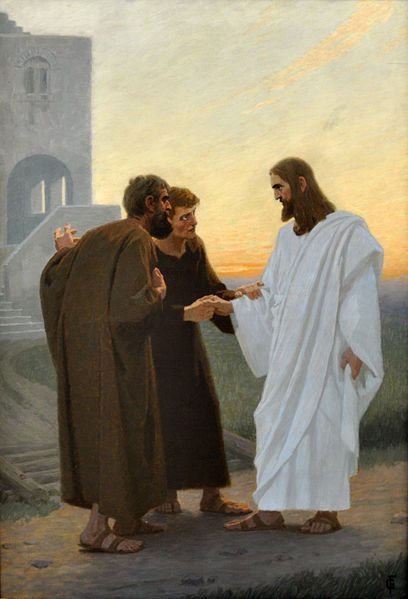Emmaus Reflections
SONGS anout WALKING TOGETHER and EMMAUS: POEMS recited: Servant Girl at Emmaus— Denise Levertov (inspired by the painting above by Diego Valázquez c.1620) She listens, listens, holding her breath.Surely that voiceis his—the onewho had looked at her, once,across the crowd, as no one ever had looked?Had seen her?Had spoken as if to her?Surely those hands […]

